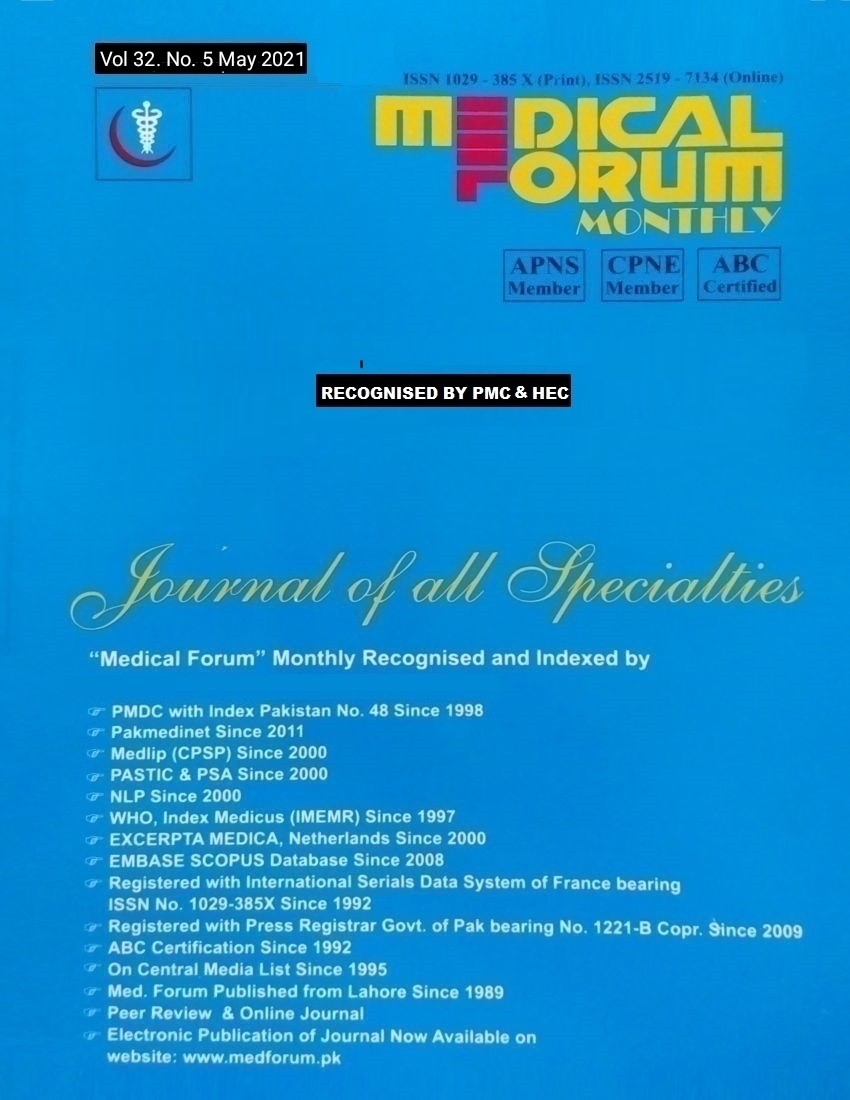
10. Effectiveness of Oral Zinc Sulphate in Reducing the Serum Bilirubin Level in Neonates Having Unconjugated Hyperbilirubinemia
Muhammad Sarfraz Alam, Ubaid Ullah Khan, Mimpal Singh and Hamid Raza
ABSTRACT
Objective: To determine the effectiveness of oral zinc sulphate in reducing the serum bilirubin level in neonates having unconjugated hyperbilirubinemia.
Study Design: Randomized Control Trial study.
Place and Duration of Study: This study was conducted at the in Neonatal Unit Paediatric Medicine Unit II Mayo hospital Lahore in one year from January 2019 to December 2019.
Materials and Methods: Total 100 neonates (50 patients in each group) were enrolled by non-probability, consecutive sampling. Study population was divided in to two groups. Baseline serum bilirubin level was measured of each neonate included in study. Group A was given oral zinc 10 mg / day in once daily dose orally in suspension form. Total serum bilirubin was measured after every 24 hours in both groups. Percentage reduction in total serum bilirubin level was measured on 3rd and 5th day with baseline serum bilirubin of each neonate and results were compared among both groups. The neonates having total serum bilirubin in phototherapy zone in both groups were given phototherapy. Duration of phototherapy was compared between groups. Data was entered SPSS-20. Comparison of two groups, placebo group and zinc sulphate apply independent sample t-test. P-value ≤ 0.05 was taken as significant.
Results: After 24 hours phototherapy, the mean indirect bilirubin of group A patients were 13.50±3.68 mg/dl whereas the mean indirect bilirubin of group B patients was 12.35±3.77 mg/dl. After 48 hours the mean indirect bilirubin of group A patients were 10.99±3.19 mg/dl whereas the indirect bilirubin of group B patients was 10.35±2.94 mg/dl. After 72 hours the mean indirect bilirubin of group A patients were 9.30±2.99 mg/dl whereas the mean indirect bilirubin of group B patients was 9.35±3.33 mg/dl. Similarly, after 96 hours the mean indirect bilirubin of group A patients were 9.33±2.58 mg/dl whereas the mean indirect bilirubin of group B patients was 9.60±0.75 mg/dl. Regarding indirect bilirubin at follow up, there was statistically insignificant difference between the study groups i.e. p-value>0.05. The median duration of treatment in group A was 3.00 days (range=2-4) while in group B was 2.50 days (range=2-4). The difference was insignificant (p>0.05).
Conclusion: Oral zinc sulphate has no effect in reducing the total serum bilirubin level in full term and near term neonates having unconjugated hyperbilirubinemia.
Key Words: Unconjugated Hyperbilirubinemia, Neonates, Serum Bilirubin, Zinc Sulphate
Citation of article: Alam MS, Khan U, Singh M, Raza H. Effectiveness of Oral Zinc Sulphate in Reducing the Serum Bilirubin Level in Neonates Having Unconjugated Hyperbilirubinemia. Med Forum 2021;32(5):40-43.
